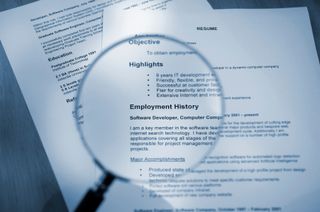 As one of the top five of Fortune’s Top 100 Best Companies to Work for in 2010, Google sees thousands of résumés every day. In fact, in 2008 The NewYork Times reported that Google received more than 20,000 résumés each week – that’s an average of two résumés every minute. While most companies don’t see anything like two to three thousand résumés every day, let alone in a year, in today’s economy there’s still numerous applicants for every open job no matter where you apply. So how do you get the job when you’re up against such tough competition?
As one of the top five of Fortune’s Top 100 Best Companies to Work for in 2010, Google sees thousands of résumés every day. In fact, in 2008 The NewYork Times reported that Google received more than 20,000 résumés each week – that’s an average of two résumés every minute. While most companies don’t see anything like two to three thousand résumés every day, let alone in a year, in today’s economy there’s still numerous applicants for every open job no matter where you apply. So how do you get the job when you’re up against such tough competition?
What Google Looks for in Candidates
Entrepreneur Magazine recently interviewed Google’s staffing manager, Todd Carlisle, on what he looks for in an employee when hiring for Google’s highly coveted jobs, and one of the qualities Carlisle mentions is ambition. “An Ivy League alum with a high GPA is great, but even better is the person who was the first in the family to go to college and did well while working an extra job,” Carlisle said.
It’s probably not a surprise to you that employers are looking for qualities like determination and self-motivation in potential employees. With smaller workforces and heavy workloads, businesses need employees with the drive to help solve problems and boost productivity.
For unemployed job seekers, it’s difficult to stay motivated and driven when finding work has become a full-time job in its own right. For employees who are looking to job hop because of stress, employee engagement issues, or job security concerns at work, it’s tempting to play it safe and lay low in their current position. But, to get the job and stand out from the crowd, determination and aspiration are exactly what you need whether you’re unemployed or just job hopping.
Preparing for Your Next Interview
Before your next interview, come up with several examples that demonstrate your ambition, whether it’s when you took initiative to make a process more efficient at work or when you went to night school while you working full-time to build a better future for you and your family.
Above all, as you continue your job search, remember to stay motivated. Don’t settle. Keep learning. Keep dreaming. Keep growing and doing. The skills you acquire and develop today will help get you the job of your dreams tomorrow.



